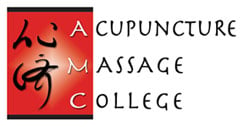Music has a profound effect on your body and psyche. Certain music helps to focus attention, accelerate learning and enhance health. Music has also been found to bring many other benefits, including lowered blood pressure and reduced risk of stroke. Music is increasingly being utilized as a tool to help the body maintain health and prevent illness.
People are increasingly discovering ways music can be leveraged for the benefit of health. Listening to any music that is personally enjoyable has positive effects on cognition. In addition, music can strengthen memory. Musical recitation enhances the coding of information by activating neural networks in a more optimal manner. Researchers have found that individuals who are given musical training have better verbal memories than those who have not had lessons. These findings can also aid in helping people recover from brain injury.
Music with a quick tempo can stimulate brainwaves to resonate with the beat, resulting in sharper concentration and more alert thinking. Alternatively, music with a slower tempo can produce a calm, meditative state. The change in brainwave activity can bring lasting benefits even after you’ve stopped listening to music by aiding the brain to function more effectively.
Listening to classical music, such as Mozart, produces positive neurological effects that can enhance performance on cognitive tests and improve learning and concentration. Classical music can aid in getting a better night’s sleep by boosting levels of melatonin (the sleep-inducing brain chemical). Additionally, classical music has been found to lower blood pressure in college students.
Music can also benefit Alzheimer’s patients by boosting memory. Alzheimer’s patients have improved recall of words, faces and names after listening to certain types of music. Singing and playing an instrument can increase and deepen breathing capacity, which can aid in the treatment of chronic obstructive pulmonary disease patients who experience breathing difficulties. Music can also combat cases of chronic stress by slowing breathing and heart rate.
Music has been shown to effectively treat depression by producing a more positive mind state. Upbeat music combined with aerobic exercise can reduce symptoms of depression by as much as 25 percent. Using music during a workout can also keep up energy levels during cardiovascular exercise.
Music therapy has been used to treat cancer patients and individuals with ADD. Music has also been integrated into pain management health care along with guided imagery to combat chronic pain. Music decreases pain by increasing production of endorphins, the body’s natural painkillers. Additionally, music therapy has been integrated into hospital health care programs to promote patient mental, physical and emotional well being.
For information about Acupuncture & Massage College’s Oriental Medicine and Massage Therapy programs call Joe Calareso at (305) 595-9500. For information about acupuncture for wellness ask for Dr. Richard Browne, Acupuncture Physician.

 (305) 595-9500
(305) 595-9500






